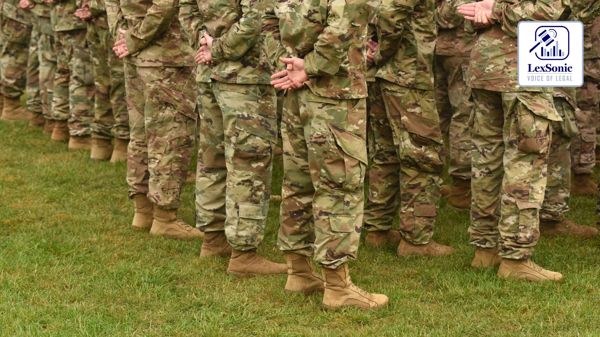In a landmark judgment of Lt. Col. Suprita Chandel v/s Union of India & Others, the Supreme Court of India ruled in favor of a woman officer from the Army Dental Corps, directing her to be granted permanent commission despite missing out on an opportunity due to amendments in service rules. This decision underscores the principle of equality before the law and aims to correct the discrepancy where similarly situated officers were granted relief while the appellant, due to specific circumstances, was excluded from the benefit.
Background of the Case:
The appellant, commissioned as a Short Service Commissioned (SSC) Officer in the Army Dental Corps on March 10, 2008, was 27 years old at the time. According to the regulations at that time, SSC officers were entitled to three attempts at the departmental examination for permanent commission, along with an age relaxation provision.
However, in March 2013, an amendment to the rules capped the age for the third attempt and restricted age extensions to those possessing a Master’s in Dental Surgery. This amendment, introduced in AI 37 of 78, severely impacted officers like the appellant, who was ineligible to avail of the third chance despite fulfilling all criteria before the amendment came into effect.
Litigation Journey:
The appellant's plight was not unique. Other similarly situated officers, who were similarly deprived of their third chance after the amendment, filed Original Applications before the Armed Forces Tribunal (AFT), seeking relief. In January 2014, the AFT, Principal Bench, New Delhi ruled in favor of these officers, granting a one-time age relaxation for permanent commission consideration. Unfortunately, the appellant could not join this litigation due to her advanced pregnancy, but she continued to seek justice.
Her representations, including one made in September 2014, were dismissed with the reasoning that the benefit granted was "only to the petitioners" of the 2013 batch. She filed further applications, including an appeal before the AFT Regional Bench in Lucknow in 2021, which was dismissed based on the argument that she had not been part of the previous petitioners’ batch.
Court’s Ruling:
The Supreme Court, after thoroughly examining the case, found that the appellant was unjustly excluded from the relief granted to similarly situated officers. It recognized that, like the petitioners in the 2013 case, the appellant had qualified before the amendment, thus making her eligible for permanent commission under the previous policy.
The Court emphasized a well-established legal principle that when a favorable declaration of law is made by the court, others in a similar situation should be given the same benefit, even if they did not directly litigate. In this case, the Court determined that the department had unjustifiably denied the appellant the benefit of the AFT’s previous ruling.
Addressing the Delay:
The Court also addressed the delay in the appellant’s approach to the Tribunal. While the appellant’s application was delayed by a few years, the Court found that this delay was due to reasonable factors, including her maternity leave, posting in difficult terrains, and the Covid-19 pandemic. The Court opined that the appellant’s efforts to seek relief were diligent and in good faith, thus ruling that the delay should not bar her from justice.
Final Judgment:
The Supreme Court directed the appellant to be granted a permanent commission with the same benefits and entitlements as the officers who had been granted relief in 2014. This included seniority, promotion, and financial benefits, which were to be implemented within a month. The Court emphasized that it would be unjust to subject the appellant to the amended rules of 2013, especially considering her service record and distinguished career.
Conclusion:
This case stands as a testament to the importance of fair treatment and equal opportunities within the military services. The decision not only granted relief to the appellant but also reinforced the legal principle that no one should be discriminated against based on technicalities, especially when they are similarly situated to others who have received favorable rulings. The Court’s use of its powers under Article 142 of the Constitution to ensure justice for the appellant highlights the judiciary’s role in correcting systemic injustices.

